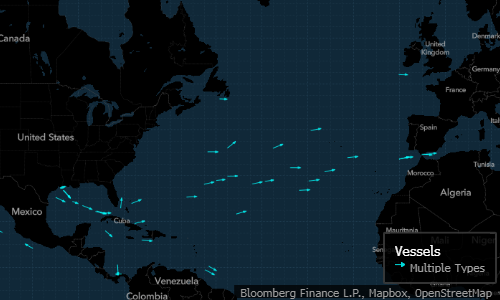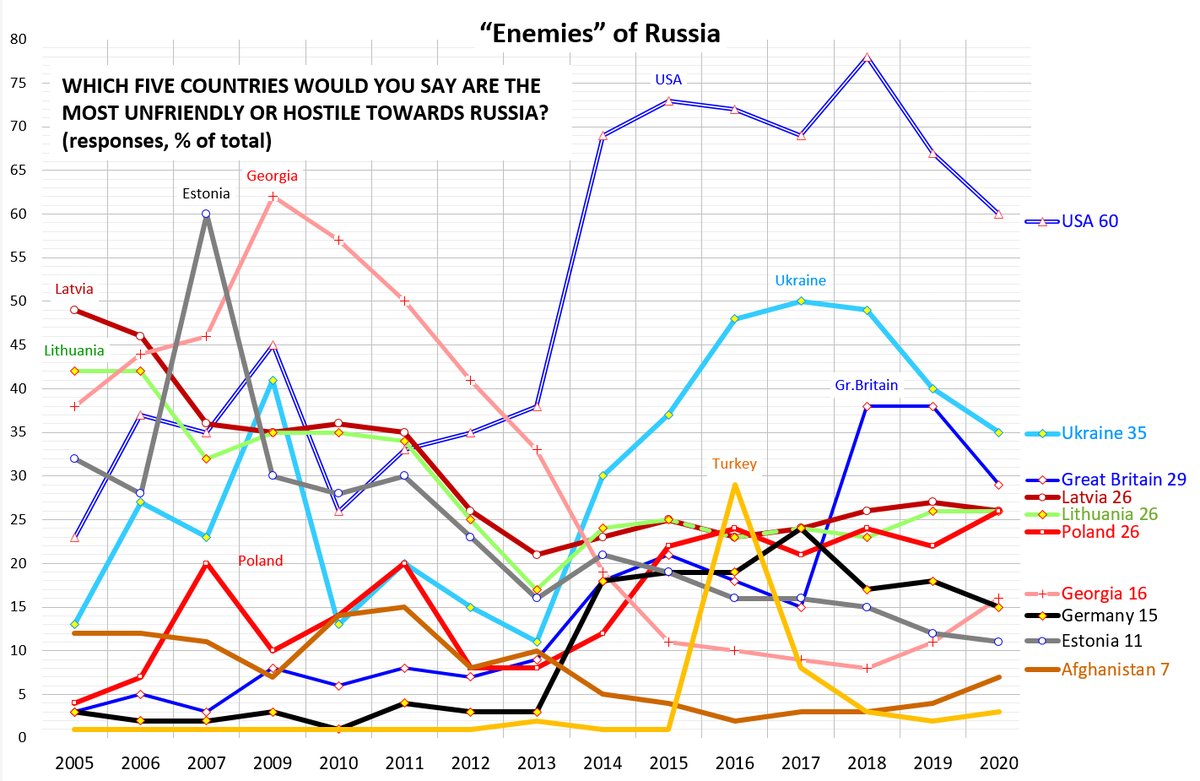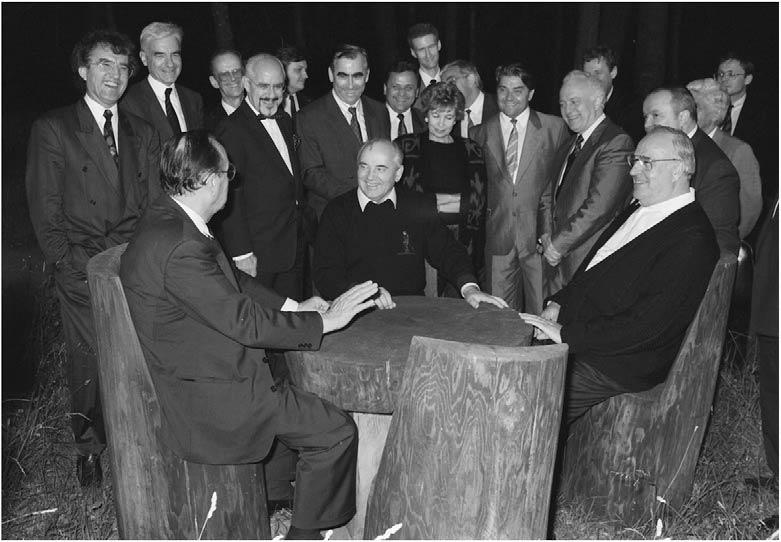
Problemen met registreren of reageren op de berichten?
Een verloren wachtwoord?
Gelieve een mail te zenden naar [email protected] met vermelding van je gebruikersnaam.
 |
Registreren kan je hier. Problemen met registreren of reageren op de berichten? Een verloren wachtwoord? Gelieve een mail te zenden naar [email protected] met vermelding van je gebruikersnaam. |
|
|
#14301 | |
|
Secretaris-Generaal VN
Geregistreerd: 4 november 2020
Berichten: 28.445
|
Citaat:
De democratie haat mensenrechten en is totalitair, vraag het de omgeving rond Libië maar. Vraag het mensen die doden door ontbering kennen door maatregelen die levens zouden moeten redden, en al voor covid19 hoor. Of kijk naar die vaccinazi die iedereen willen verplichten. Zonder Rusland was het hele oosten overgeleverd aan radicale elementen die deze generatie politici als onderdrukte sukkelaars verkocht. Zoek de relatie met nazi duitsland in oosterse collaboraties. Dat ze duidelijk is waar het verzet echt geldt moet ik niemand met stand van zaken inlichten. Tick tack
__________________
Silence sharpened with fatal precision. Laatst gewijzigd door CUFI : 22 december 2021 om 08:18. |
|
|
|

|
|
|
#14302 | |
|
Europees Commissaris
Geregistreerd: 24 november 2007
Locatie: Nederland
Berichten: 7.580
|
Citaat:
Verder vind ik jou eigenlijk moreel nog verwerpelijker dan kaalkopjes als MaxvanDietschland of Zobron. Zij zijn domme racisten en antisemieten. Jij daarentegen doet alsof je voor de mensenrechten bent, maar verdedigt schurkenstaten. |
|
|
|

|
|
|
#14303 | ||
|
Banneling
Geregistreerd: 18 februari 2003
Berichten: 26.968
|
Citaat:
En dan maar janken over de Nato die "Mondelinge" toezeggingen van 30 jaar geleden niet zou respecteren. Hoe geloofwaardig is dat gejank als Rusland zelf continu Geschreven verdragen verwerp en zelfs eenzijdig staatsgrenzen verlegt? https://www.vrt.be/vrtnws/nl/2021/12...en-gaan-slape/ Citaat:
Dat moet we een complot van het Westen zijn, nietwaar? Laatst gewijzigd door parcifal : 22 december 2021 om 12:07. |
||
|
|

|
|
|
#14304 | |
|
Secretaris-Generaal VN
Geregistreerd: 4 juli 2003
Locatie: Nederland
Berichten: 44.211
|
Citaat:
Het uiteenvallen van de Sovjet-Unie op een chaotische manier is niet verwerkt in Rusland. Gebieden die eeuwenlang Russisch waren en waar etnische Russen wonen horen nu tot andere landen. Als die landen OK zijn, en hun rechten garanderen, en niet samenspannen met vijanden van Rusland, is dat OK. Zoniet, heeft Rusland het recht in de grijpen in wat, tot 1989, eigenlijk Rusland was. Als Texas zich morgen onafhankelijk verklaart, denk je dat de VS dat zomaar zullen aanvaarden? Bovendien, de Krim bvb. had tijdens de Sovjet-periode constitutioneel het recht zich af te scheiden van Oekraïne, net als Oekraïne het recht had zich af te scheiden van de Sovjet-Unie. Dat het Westen niet inzit met veranderende grenzen en separatisme als hen dat goed uitkomt, hebben we gezien in Kosovo. Rusland en China zijn volgens U schurkenstaten omdat ze de neokoloniale directieven van de VS en Brussel, en van het IMF en co., niet volgen. Bovendien, oh horror, vinden ze de "liberale democratie" (op en top een leeg begrip maar goed dat is een andere discussie) niet noodzakelijkerwijze de na te streven doelstelling. Rusland en China zijn niet alleen onafhankelijk van het Westen, maar bemoedigen ook lang door het Westen onderdrukte derde wereld landen aan om hen te vervoegen. Op zijn minst krijgen landen als Kenia een keuze en kan het Westen hen niet zomaar dingen door de strot duwen. Daarom bent U furieus op mensen die Rusland en China verdedigen, zoals ik, dat begrijp ik. De tijden dat de Bilderberg groep besliste hoe de wereld er uit zou zien, zijn voorbij, dat vindt U ongetwijfeld vreselijk. |
|
|
|

|
|
|
#14305 | |
|
Secretaris-Generaal VN
Geregistreerd: 4 juli 2003
Locatie: Nederland
Berichten: 44.211
|
Citaat:
U weigert uiteraard mijn vragen te beantwoorden, liever dezelfde domme propaganda nog maar eens herhalen, zonder te diep in te gaan op feiten of argumenten want dan wordt het "tricky" en dreigt U door de mand te vallen. Dus ik herhaal een van mijn vragen nog een keer: Hoe verklaart u dat de levensstandaard volgens objectieve gegevens van de UNDP, Unicef en de Worldbank stukken hoger ligt in Kazakhstan, Rusland EN Belarus vergeleken met landen als Georgie of Oekraine die volgens U grote voorbeelden voor die eerstgenoemde landen zouden moeten zijn? |
|
|
|

|
|
|
#14306 | |
|
Secretaris-Generaal VN
Geregistreerd: 4 juli 2003
Locatie: Nederland
Berichten: 44.211
|
Citaat:
Maar ondertussen is het trauma toch grotendeels verwerkt. Onder meer omdat: 1) Rusland heeft nu een president die opkomt voor Rusland en etnische Russen, de tijd van verraders zoals Gorbatsjov en Jeltsin is voorbij. 2) De Russen hebben door dat een andere communistische grootmacht, op het puntje staat de wereld over te nemen. Dat vinden ze een veel meer geruststellende gedachte dan Amerikaanse dwingelandij zoals in de jaren 90. 3) De koude oorlog is onder andere beslist door de desastreuze Afghanistan oorlog van de Russen. De Amerikanen hebben er 2 keer langer gezeten, en nog veel meer uitgegeven, zonder enig resultaat. Beelden van Amerikanen die in bodybags terugkwamen kwamen erg vertrouwd over in Rusland. Het monster van Frankenstein dat de Amerikanen creëerden beet hun meester in de vingers. 4) Russen die naar Oekraïne, Georgië, etc. reizen kunnen met eigen ogen zien dat ze welvarender zijn en beter bestuurd worden. Er komen trouwens veel Russen naar Georgië, het is er goedkoop en iedereen spreekt Russisch. Ze kunnen met eigen ogen zien dat de Georgiërs afzien, en dat de keuzes die Georgische leiders gemaakt hebben, ervoor gezorgd heeft dat Georgiërs, die in Sovjet-tijd zelfs iets welvarender waren dan Russen, het nu minder goed hebben. De tijd van wraak en haat is voorbij, nu is het tijd van medeleven met mensen die au fond toch eigenlijk heel erg op hen lijken. Georgië heeft de Russische toeristen keihard nodig, want voor de rest is de economie een "basketcase". Via allerlei sluip routes probeert de Georgische overheid ook terug de gigantische afzetmarkt voor Georgische producten die Rusland, Kazakhstan, etc. traditioneel is, aan te boren. Hun avontuur met het Westen leverde niets dan miserie op. Saakasjvili zit nog steeds in de gevangenis, en hij zit daar goed. Laatst gewijzigd door tomm : 22 december 2021 om 15:19. |
|
|
|

|
|
|
#14307 |
|
Secretaris-Generaal VN
Geregistreerd: 4 juli 2003
Locatie: Nederland
Berichten: 44.211
|
Hoe een Israeliët van Russische origine, geboren in de Sovjet-Unie, erover denkt. En ondanks het feit dat Israel een nauwe Amerikaanse bondgenoot is, houden Joden zelden een blad voor de mond. Super interessant, en anders dan westerse journalisten, met kennis van zaken geschreven.
https://www.quora.com/How-does-pover..._ans=326594950 |
|
|

|
|
|
#14308 |
|
Perm. Vertegenwoordiger VN
Geregistreerd: 26 september 2017
Berichten: 17.341
|
Rusland lijkt bereid north stream 2 en zelfs Swift op te geven.
Rusland vraagt een veiligheidscorridor. Terugtrekking agressieve wapens aan beide zijden van de grens. NATO zal hier niet op willen ingaan is te verwachten. Stabiliteit in Europa is namelijk niet in het voordeel van de VS en het is de VS die uiteindelijk de NATO politiek bepaalt. Misschien hoopt Rusland dat Duitsland de VS op andere ideeën brengt aangezien de escalatie noch voor Europa noch voor Rusland voordelig is. Een akkoord zoals in de jaren 70 zou een oplossing kunnen zijn. Rusland geeft in ieder geval de indruk het te menen geen verdere NATO expansie te dulden. Dit voornamelijk mbt Oekraïne (nog geen lid) en Polen (kwestie van kernwapens). Als er geen ('geschreven' deze keer) garanties komen in deze zin kunnen we verwachten dat Rusland o.a kernwapens in wit Rusland zal plaatsen. Een oplossing ligt voor de hand maar de verdeel en heers politiek van de VS maakt een Europees Russische toenadering onwaarschijnlijk op dit moment. Het risico op oorlog bestaat ook. En dat kan wel eens moeilijk in de hand te houden zijn. Een schending van de Minsk akkoorden door Oekraïne is de simpelste manier om Rusland in een oorlog te storten. Zelensky lijkt alvast mentaal klaar voor de escalatie. Ondertussen kan Rusland het gas van de voor North Stream 2 voorziene gasvelden ook kwijt aan China via het geplande Power of Siberia 2 project. Het nieuwe ijzeren gordijn lijkt een realiteit geworden. Europa en Rusland worden een arm afgesneden. Dat Rusland harder zou kunnen bloeden kan moeilijk een troost genoemd worden voor ons continent. Laatst gewijzigd door Bach : 23 december 2021 om 21:46. |
|
|

|
|
|
#14309 | |
|
Perm. Vertegenwoordiger VN
Geregistreerd: 5 november 2013
Berichten: 15.664
|
Citaat:
Poetin is niet in staat om de realiteit van deze eeuw te accepteren . Hij blijft leven in de vorige eeuw , in een tijd die voorbij is. Juist dat is slecht voor Rusland en jammer, want de Russen hebben beter verdiend. Laatst gewijzigd door cato : 24 december 2021 om 00:20. |
|
|
|

|
|
|
#14310 |
|
Secretaris-Generaal VN
Geregistreerd: 26 september 2003
Locatie: van Lissabon tot Vladivostok
Berichten: 35.095
|
De Russische Federatie heeft een ultimatum gesteld.
En de voorwaarden van dit ultimatum werden publiek gemaakt. Rusland is de agressie mijns inziens grondig beu en wil orde op zaken stellen.
__________________
Doorzoek forum.politics.be (aangepaste zoekmachine) Laatst gewijzigd door Nr.10 : 24 december 2021 om 00:31. |
|
|

|
|
|
#14311 | |
|
Perm. Vertegenwoordiger VN
Geregistreerd: 26 september 2017
Berichten: 17.341
|
Citaat:
Buitenlandse zaken: “We do not speak in the language of ultimatums with anyone. We have a responsible attitude towards our own security and the security of others. The point is not that we have issued an ultimatum, not at all, but that the seriousness of our warning must not be underestimated.” Laatst gewijzigd door Bach : 24 december 2021 om 02:31. |
|
|
|

|
|
|
#14312 | |
|
Perm. Vertegenwoordiger VN
Geregistreerd: 26 september 2017
Berichten: 17.341
|
Citaat:
Uiteindelijk weet Rusland dat de VS degene is waarmee ze dienen te spreken willen ze deze zaak oplossen via een onderhandeld akkoord. En dat is op zich al schaamtevol voor Europa. Helaas veel slaven mentaliteit in Europa. Naoorlogse generaties zijn er mee opgegroeid. Als de Europees Russische handel stopt gaan de derde honden met het been lopen. Europa zal nog steviger aan de VS vast hangen en Rusland zal nog meer naar Azië kijken. China in de eerste plaats. Laatst gewijzigd door Bach : 24 december 2021 om 02:33. |
|
|
|

|
|
|
#14313 |
|
Europees Commissaris
Geregistreerd: 11 februari 2005
Berichten: 7.957
|
Om even op Karel van Wolferen terug te komen, dit is een interview met hem over de relaties tussen Europa en Rusland, uit 2019:
https://www.youtube.com/watch?v=IX3kuYa3T9s
__________________
De waarheid voorop Laatst gewijzigd door Der Wanderer : 24 december 2021 om 05:31. |
|
|

|
|
|
#14314 | |
|
Banneling
Geregistreerd: 18 februari 2003
Berichten: 26.968
|
Citaat:
Putin zijn paranoia begint Stalinistische afmetingen aan te nemen Rusland EIST veiligheidsgaranties terwijl zij de grootste Nucleaire Macht in Eurasie zijn, het grootste conventionele leger hebben, soldaten en militaire basissen in tal van Buurlanden, al dan niet in het geheim. Rusland heeft Nucleaire Raketten staan nabij de EU, op minuten vlucht-afstand van Berlijn, Brussel, Amseterdam en Rome en de Navo heeft GEEN ENKELE Nucleaire raket in Europa staan. Misschien moet het Westen en de NATO dan maar een veiligheidspact tekenen, misschien in Boedapest ofzo waarbij ze garanderen dat ze het territorium van Rusland gaan beschermen? Een soort van Memorandum als het ware. Laatst gewijzigd door parcifal : 24 december 2021 om 09:17. |
|
|
|

|
|
|
#14315 | |
|
Banneling
Geregistreerd: 18 februari 2003
Berichten: 26.968
|
Nu Rusland de first strike heeft geleverd met het stoppen van Gas via de Yamal-pijpleiding, is er gelukkig al een tegenoffensief gestart.
30 Amerikaanse LNG tankers zijn onderweg naar de EU, met 3 zo'n tankers per dag kunnen we in Principe alle Aardgas uit Rusland weigeren in de toekomst. Er ligt een mooie toekomst in het verschiet (hopelijk) voor de LNG terminal in Zeebrugge. Belgie kan zijn steentje bijdragen en zal dat hopelijk ook doen. Capaciteit moet verder omhoog. https://twitter.com/Laveyne_J/status...61394835963910 Citaat:
 Laatst gewijzigd door parcifal : 24 december 2021 om 09:22. |
|
|
|

|
|
|
#14316 |
|
Banneling
Geregistreerd: 18 februari 2003
Berichten: 26.968
|
Dit is een mooie grafiek die laat zien hoezeer staatspropaganda de Russische publieke opinie beinvloedt.
"Vijanden van Rusland tussen 2005 en 2020", je zou er zo de krantenkoppen kunnen naastleggen die deze grafieken veroorzaken.  |
|
|

|
|
|
#14317 | |||||
|
Banneling
Geregistreerd: 18 februari 2003
Berichten: 26.968
|
Citaat:
In 2010 slaagde Yanukovich er wel in om de fraude voldoende te verstoppen, het is een leerproces, nietwaar? Maar toen dat "Presidentschap" zo desastreus uitdraaide heeft HET VOLK beslist om het alweer niet te pikken en *GEWELDLOOS* 3 maanden te protesteren op Maidan. Het is Yanukovich (ongetwijfeld op aanraden van Russische "Adviseurs") die het geweld is gestart en die zijn presidentschap opgaf en vluchte (met miljarden gestolen geld en goud) richting Rusland, bij zijn berschermheer, de oppercorrupte piratenkoning Poetin. Wat in Donbas gebeurde was uiteraard geen Burgeroorlog, maar een hybride oorlog met Rusland. Zonder Russische agenten en provocateurs, zou er NOOIT enige vorm van "opstand" geweest zijn in Donbas. Dit is een puur russische fabricatie uietaard. Citaat:
Is Poetin even zot geworden als Stalin was die overal dreigingen zag, maar die zelf de grootst mogelijke dreiging was, voor zijn eigen bevolking en voor anderen. Citaat:
Oekraiene is een echte democratie geworden, terwijl we in Rusland een dicatuur naar Noord-Koreaans model zien ontstaan De Onafhankelijke media is dood in Rusland, Oppositieleden werden vermoord of opgesloten, er is geen snipper democratie of rechtstaat over in Rusland. Het land is op een crashkoers richting catastrofe en Piratenkoning Poetin weet het. Citaat:
Het Westen heeft proberen bemiddelen, maar het volk heeft beslist om radikaal te breken met het verleden en geen Russische kolonie meer te zijn. Maidan was de revolutie van Waardigheid : het Oekraiense volk koos vanaf dan zelf zijn toekomst, ook al wisten ze maar al te goed dat Rusland dat zou belonen met veel bloed, economische wurging en politieke ultimatums. Citaat:
Nog maar eens dan : Oekraiene en Georgie zitten in een (Hybride) oorlog met Rusland en worden door hun veel sterker buurland economisch gewurgd. Ze zijn er niet in geslaagd om tijdig onder de beschermde paraplu te komen van NATO en EU, wat wel gelukt is met de Baltische staten en Polen. Misschien moet je de levensstandaard van DIE LANDEN eens vergelijken met Rusland, Belarus en Kazakhstan? Ik wacht wel. Je pogingen maken gelukkig niet de minste indruk. Je kan blijven proberen maar echte argumenten heb je niet. |
|||||
|
|

|
|
|
#14318 | |
|
Banneling
Geregistreerd: 18 februari 2003
Berichten: 26.968
|
Een zeer goed draadje over de Russische bewering dat het Westen in 1990 zou toegezegd hebben om "Not one inch" oostelijk op te schuiven na de ontbinding van het Warschau-pact.
In het kort : het is onwaar en Putin liegt erover. In ruil voor Financiele hulp heeft Gorbachov in 1990 wel degelijk toegelaten dat de Navo naar het Oosten kon uitbreiden. https://twitter.com/e_sarotte/status...67805403000840 Citaat:
Laatst gewijzigd door parcifal : 24 december 2021 om 10:17. |
|
|
|

|
|
|
#14319 | |
|
Perm. Vertegenwoordiger VN
Geregistreerd: 26 september 2017
Berichten: 17.341
|
Ivm gas.
Het LNG (dat de VS naar Azië exporteerden omdat daar de prijzen hoger lagen) wordt door Europa rond de 2000 dollar per duizend kubieke meter betaald op de spot market. Het Russisch gas krijgt Europa aan 300 dollar via lange termijn contracten. Ten tweede heeft Rusland geen kubieke meter minder geleverd dan wat contractueel vastgelegd is. Integendeel (details zie bijhorende tekst). Voor meer info over de manipulatie van de gasprijzen kan volgende link interessant zijn. Ik geef een een vertaling naar het Engels bij door Lampe. Putin im O-Ton zur den Gaspreisen: „Die Verbraucher in Deutschland sollten eine Erklärung fordern“ Citaat:
Laatst gewijzigd door Bach : 24 december 2021 om 11:34. |
|
|
|

|
|
|
#14320 | |
|
Perm. Vertegenwoordiger VN
Geregistreerd: 26 september 2017
Berichten: 17.341
|
Mbt de oostwaartse NATO expansie en de gemaakte beloften daarrond.
NATO Expansion: What Gorbachev Heard Declassified documents show security assurances against NATO expansion to Soviet leaders from Baker, Bush, Genscher, Kohl, Gates, Mitterrand, Thatcher, Hurd, Major, and Woerner Slavic Studies Panel Addresses “Who Promised What to Whom on NATO Expansion?”  Citaat:
Laatst gewijzigd door Bach : 24 december 2021 om 11:29. |
|
|
|

|